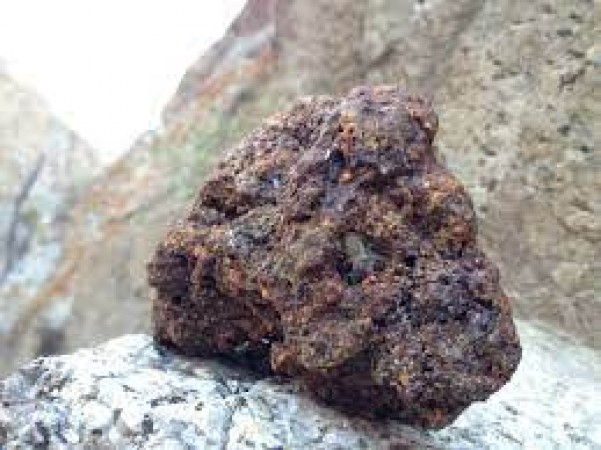
Shilajit, a mysterious and revered substance, has captured the fascination of people for centuries. Often referred to as the "sweat of mountains," this natural resin exudes from the cracks and crevices of high-altitude rocks in several mountainous regions. In this exploration, we dive into the enigmatic world of Shilajit, uncovering its origins, composition, potential benefits, and the science behind its unique moniker.
Shilajit is a sticky, tar-like substance that oozes from the rocks in mountainous terrain, particularly in the Himalayas, Altai Mountains, Caucasus Mountains, and other high-altitude regions. This dark, resinous material is a result of the decomposition of plant and microbial matter over centuries. Rich in minerals, fulvic acid, and other organic compounds, Shilajit has been used in traditional Ayurvedic medicine for its purported health benefits.
The nickname "sweat of mountains" conjures up a vivid image of this substance being the perspiration of Earth's majestic peaks. However, this description is more metaphorical than literal. Shilajit's formation is a complex geological and biological process that involves the decomposition of plant matter and the interaction of microorganisms over eons.
Shilajit's geological origins trace back to the ancient forests that once covered the areas where it is found today. Over time, these forests were buried under layers of sediment, eventually transforming into humus-rich deposits. The immense pressure and heat within the Earth's crust caused these deposits to undergo a remarkable transformation, resulting in the formation of Shilajit.
Shilajit is a treasure trove of bioactive compounds, making it a subject of scientific interest. Its composition includes:
Shilajit has gained popularity for its potential health benefits, which include:
While Shilajit's traditional use is well-documented, modern scientific research is still ongoing to validate its therapeutic properties. Several studies have examined its potential benefits in areas such as improving testosterone levels, managing diabetes, and promoting heart health.
It's crucial to source high-quality Shilajit products from reputable sources to ensure purity and effectiveness. Due to its rising popularity, the market is flooded with adulterated or low-quality versions.
Shilajit is available in various forms, including resin, powder, and capsules. The recommended dosage can vary depending on the product and individual needs. Consulting with a healthcare professional is advisable before starting any supplement regimen. While Shilajit may not be the literal sweat of mountains, it remains a fascinating natural substance with a rich history in traditional medicine. Its potential health benefits and unique geological origins make it a subject of continued interest and research. As with any supplement, it's essential to approach Shilajit with caution, prioritize quality, and consult with healthcare professionals when incorporating it into your wellness routine. In the realm of natural wonders, Shilajit undoubtedly holds its own as a symbol of Earth's ancient secrets, waiting to be unlocked.
Mughals brought these 6 food items with them, you also eat them by licking your fingers!
Nipah Alert in Kerala, Nipah Virus Precautions: Protecting Yourself and Others
Planning a 5-Day Budget Trip to Malaysia: A Comprehensive Guide